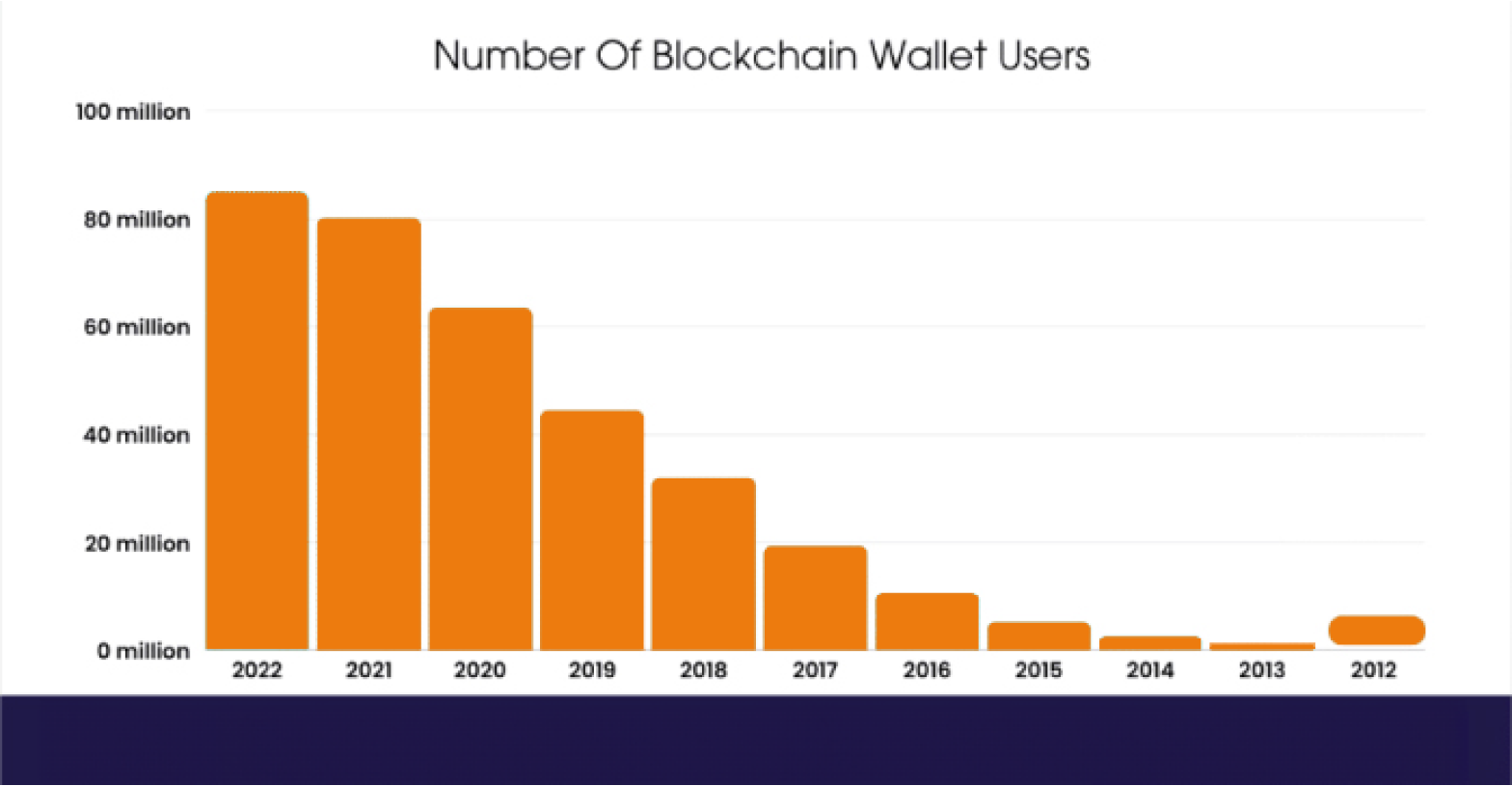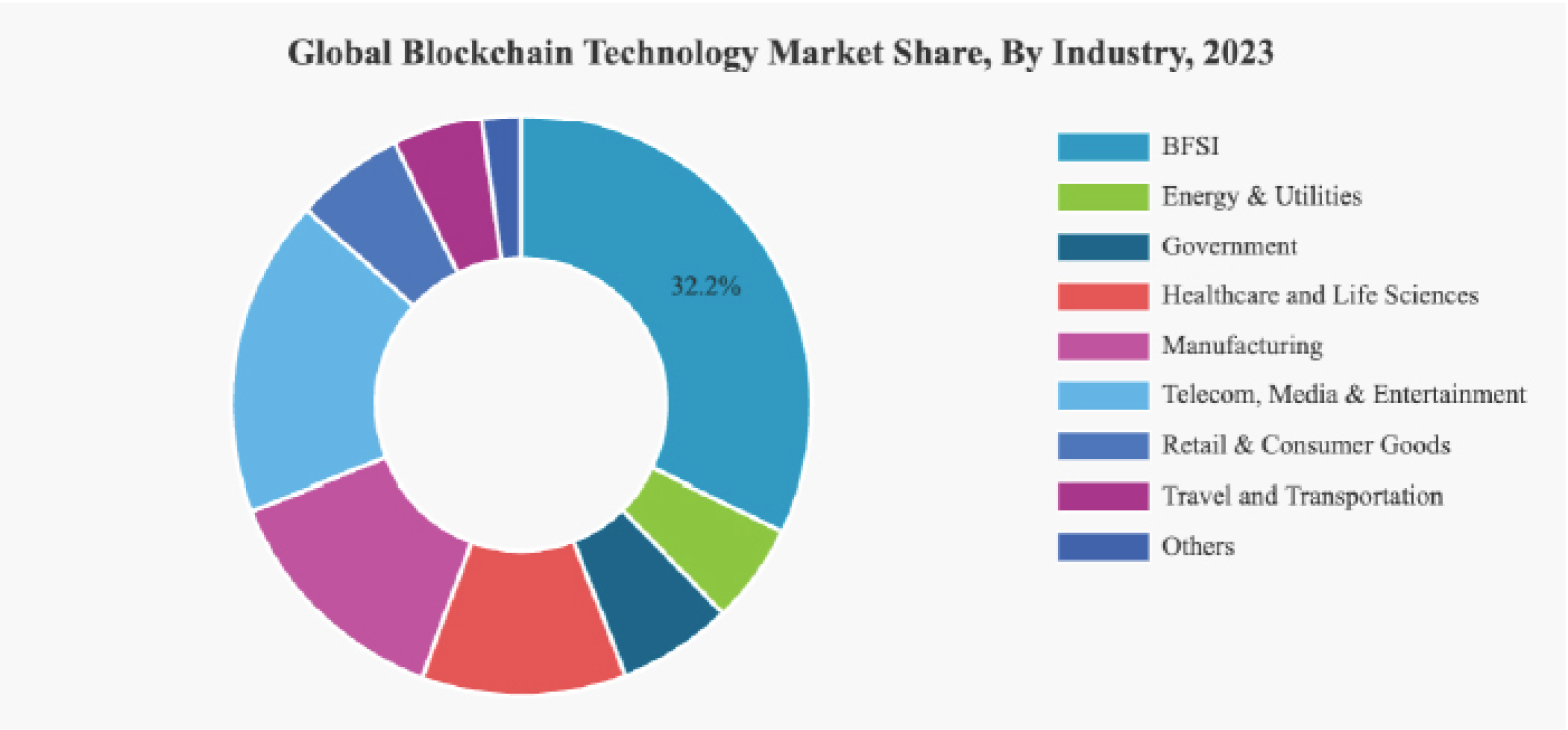The business world is Blockchainizing.
Industries’ large-scale adoption of Blockchain can be attributed to several countries advocating its large-scale use and parallelly offering a conducive environment that fuels its further growth trajectory.
When we think of top blockchain countries heavily advocating Blockchain development, the first names that come to our minds are the U.S., China, and India. The governments here are excellent at regulating their policies and procedures, enabling industries to embrace Blockchain without hassle.
So, it is no surprise that global spending on blockchain solutions will reach $19 billion in 2024. The global blockchain technology market, estimated to be USD 4.8 billion in 2022, is expected to grow at a compound annual growth rate (CAGR) of 85.7% from 2023 to 2032, reaching a staggering USD 2,334.46 billion by 2032.

The business world is Blockchainizing.
Industries’ large-scale adoption of Blockchain can be attributed to several countries advocating its large-scale use and parallelly offering a conducive environment that fuels its further growth trajectory.
When we think of top blockchain countries heavily advocating Blockchain development, the first names that come to our minds are the U.S., China, and India. The governments here are excellent at regulating their policies and procedures, enabling industries to embrace Blockchain without hassle.
So, it is no surprise that global spending on blockchain solutions will reach $19 billion in 2024. The global blockchain technology market, estimated to be USD 4.8 billion in 2022, is expected to grow at a compound annual growth rate (CAGR) of 85.7% from 2023 to 2032, reaching a staggering USD 2,334.46 billion by 2032.

The business world is Blockchainizing.
Industries’ large-scale adoption of Blockchain can be attributed to several countries advocating its large-scale use and parallelly offering a conducive environment that fuels its further growth trajectory.
When we think of top blockchain countries heavily advocating Blockchain development, the first names that come to our minds are the U.S., China, and India. The governments here are excellent at regulating their policies and procedures, enabling industries to embrace Blockchain without hassle.
So, it is no surprise that global spending on blockchain solutions will reach $19 billion in 2024. The global blockchain technology market, estimated to be USD 4.8 billion in 2022, is expected to grow at a compound annual growth rate (CAGR) of 85.7% from 2023 to 2032, reaching a staggering USD 2,334.46 billion by 2032.
Nearly 90% of businesses reported adopting Blockchain in some capacity, and 86% of enterprises believe leveraging Blockchain will take their business to the next level.

source: fortunebusinessinsights
As it turns out, Banks and financial institutions are the biggest beneficiaries of Blockchain, as they use it for multiple reasons:
Another sector profiting from blockchain adoption is the supply chain market.
As it turns out, even the healthcare industry benefits from blockchain usage colossally.
Several challenges mar Real Estate, such as a lack of transparency, complex paperwork, many intermediaries, poor transaction speed, and expensive investments. The use of blockchain has helped streamline the real estate sector.
Like the real estate sector, education suffers from a lack of transparency and security. Paper diplomas and transcripts are easily forged, access to quality education is limited, and even sharing academic transcripts is time-consuming and cumbersome. Blockchain in education ensures:

What is Full Stack Development: Do I Really Need It? Full stack development refers to the process of developing both...
Read moreMARKETING
PRODUCTS

Top 8 Reasons to Outsource React Native Development Services React Native is one of the most powerful frameworks available today...
Read moreTECH

Top 8 Reasons to Outsource React JS Development Services React JS is a widely-used JavaScript library for building modern, dynamic...
Read moreMARKETING